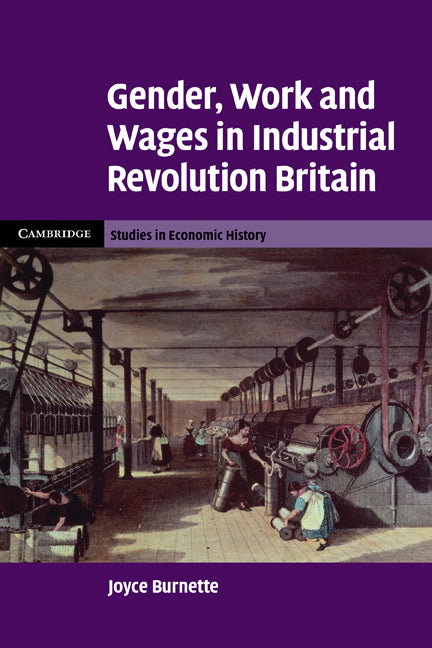Freshly Printed - allow 8 days lead
Couldn't load pickup availability
Gender, Work and Wages in Industrial Revolution Britain
A major study of the role of women in the labour market of Industrial Revolution Britain.
Joyce Burnette (Author)
9780521312288, Cambridge University Press
Paperback, published 30 June 2011
390 pages
22.9 x 15.2 x 2 cm, 0.52 kg
Review of the hardback: 'This is a highly coherent study, the main thesis of which can be easily summarised: the main explanation as to why women earned less than men in industrial revolution Britain was economic rather than cultural.' Local Population Studies
A major study of the role of women in the labour market of Industrial Revolution Britain. It is well known that men and women usually worked in different occupations, and that women earned lower wages than men. These differences are usually attributed to custom but Joyce Burnette here demonstrates instead that gender differences in occupations and wages were instead largely driven by market forces. Her findings reveal that rather than harming women competition actually helped them by eroding the power that male workers needed to restrict female employment and minimising the gender wage gap by sorting women into the least strength-intensive occupations. Where the strength requirements of an occupation made women less productive than men, occupational segregation maximised both economic efficiency and female incomes. She shows that women's wages were then market wages rather than customary and the gender wage gap resulted from actual differences in productivity.
Introduction
1. Women's occupations
2. Women's wages
3. Explaining occupational sorting
4. Testing for occupational barriers in agriculture
5. Barriers to women's employment
6. Occupational barriers in self-employment
7. Women's labour force participation
8. Conclusion
Appendixes.
Subject Areas: Economic history [KCZ], Labour economics [KCF], Early modern history: c 1450/1500 to c 1700 [HBLH], British & Irish history [HBJD1]


